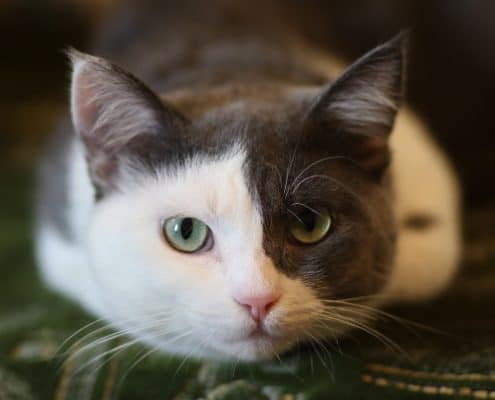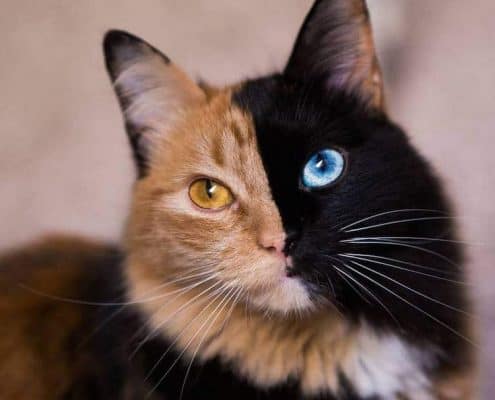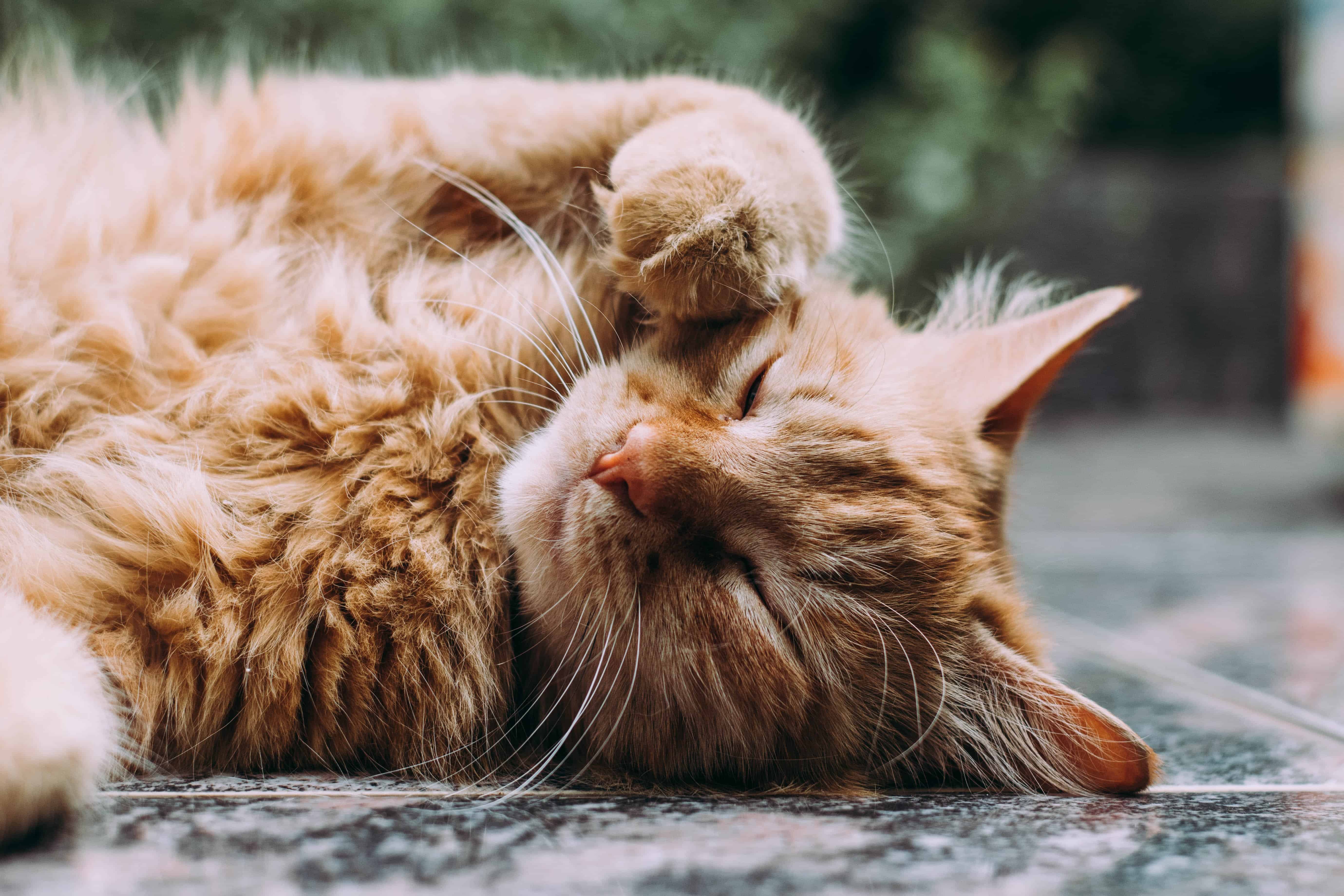Our feline friends make great companions – independent, affectionate, and entertaining – especially when it is feeding time. Cats tend to be more stoic than their canine counterparts – which can sometimes make it hard for owners to tell when they are less than healthy. Because of this, ensuring your feline companion receives preventative care from your veterinarian periodically is so important to ensure they are healthy and protected from disease. A great way to protect cats and dogs from preventable diseases is through vaccination – a simple injection can help protect your pet from multiple diseases that could cause serious health issues if left unprotected.
 What Are Vaccinations/ Why Are They Important?
What Are Vaccinations/ Why Are They Important?
Vaccinations are a crucial component of protecting your kitty’s health. Vaccines stimulate the immune system through injection of a tamed, miniature version of the virus or disease the vaccine protects against. This injection stimulates the immune system, sending signals to the body to defend itself against organisms similar to the vaccination. By signaling to fight the mini, weaker version of the disease; your pet’s body can easily combat it, developing immunity and disease-fighting “memory” to provide protection if they are exposed to the disease in the future. Through vaccinating your cat, you are essentially training their body to defend itself from infections that could be devastating or fatal without protection.
Vaccines are essential to protecting the health of our pets. There are many devastating diseases that your cat can be exposed to, some even fatal if contracted. Diseases like rabies, feline panleukopenia, calicivirus, rhinotracheitis virus can be devastating and frustrating to treat. Some diseases can even cause death, especially in young kittens or immunocompromised individuals. The positive news about these diseases is the risk of transmission can be greatly lowered by ensuring your pet receives adequate vaccination throughout their lives.
What Vaccines Does My Cat/ Kitten Need?
There are two core categories when it comes to vaccinations for cats – core vaccines and lifestyle vaccines. AVMA/AAFP recommends core vaccines for every cat to help protect them against common respiratory, gastrointestinal, and neurological diseases. Lifestyle vaccines are used to protect “at risk” cats. Your veterinarian can help you create a customized vaccination schedule and determine which vaccinations are necessary for you cat.
 Core Vaccines
Core Vaccines
The core vaccines that are recommended for cats protect against the following diseases:
- Rabies: This fatal disease spreads from wildlife to pets and humans. Typically, this vaccination required by state law and must be kept up to date.
- Feline Panleukopenia/Distemper Virus: This disease can be fatal in young kittens and can cause fever, vomiting, diarrhea, and sudden death.
- Feline Rhinotracheitis/Herpesvirus: This disease can cause respiratory and ocular signs as well as ulceration. This virus, after infection, can remain life-long and can re-activate in times of stress, causing recurrence of clinical signs.
- Feline Calicivirus: This disease can be highly contagious and is a top cause of feline upper respiratory disease. If affected, cats can have respiratory and ocular symptoms, oral ulcerations/sores, and lameness. Kittens are at a higher risk for pneumonia if infected. Rarely, a severely virulent form of the virus can cause severe damage to the internal organs and can cause death.
Lifestyle Vaccines
The lifestyle vaccines are decided on a patient by patient basis whether they should be given based on their day to day lives and factors (household, environment, and risk). The common lifestyle vaccines include:
- Feline Leukemia Virus: Feline leukemia is a common cause of viral-associated deaths in cats. This virus is spread through saliva and respiratory secretions as well as urine and milk. The most common cause of transmission is through mutual grooming, fighting, and nursing from infected mothers. This virus, if infected, can cause anemia, immunosuppression, and can commonly lead to cancer and death. This vaccine is recommended for all kittens as initial protection. If cats remain indoor only with no exposure to other cats or possibly infected cats, the vaccine may not be necessary due to low risk.
Other lifestyle vaccinations are available for cats that are housed in shelters, large volume catteries, or other risk scenarios. A thorough discussion with your veterinarian about your cat’s lifestyle will help identify and risks or need for additional vaccination. If any questions arise, please call our practice or have a discussion with your veterinarian.
 Are Vaccines Dangerous?
Are Vaccines Dangerous?
For most pets, the benefits of vaccination far outweigh the risks because the amount of immune stimulation provided by vaccines is milder than actual exposure to the disease. Most pets experience little to no issues after receiving vaccinations, but some of the most common side effects seen are:
- Soreness at the injection site
- Lethargy/fever
- Loss of appetite
- Lameness
- Vomiting
- Diarrhea
While most pets experience little to no side effects post-vaccination, rarely, side effects that indicate a more severe reaction can occur. If any of these symptoms occur, contact your veterinarian immediately. These symptoms include:
- Severe vomiting
- Severe diarrhea
- Difficulty breathing
- Hives/facial swelling
- Collapse
- Seizures
It is recommended to monitor the area where the vaccine was given periodically after vaccination. If a swelling remains for more than 3 weeks or becomes larger, we recommend consulting your veterinarian immediately. Very rarely, cats can develop injection site sarcomas, which are a rare form of cancer. These rare cancers are suspected to be related to inflammation after vaccination and can occur up to 10 years after vaccination. The primary treatment is aggressive removal of the lump and surrounding tissues – which can sometimes mean amputation. Cats generally recover well from the amputation of a tail or a limb.
 How Often Should I Vaccinate My Cat?
How Often Should I Vaccinate My Cat?
Your veterinarian will help you to decide an appropriate schedule for vaccination of your cat based on age, risks, and other components. The vaccination protocol for a kitten is typically different than an adult cat based on maternal antibodies. Because kittens are still developing, they obtain baseline immune protection from their mother’s milk that lasts until the end of their kittenhood, typically 16-20 weeks.
It is recommended to vaccinate young kittens multiple times throughout the early stages to help their bodies develop immunity of its own. Typical vaccination schedules are based on guidelines provided by the individual state, the vaccine manufacturers and the American Veterinary Medical Association and American Association of Feline Practitioners.
Kitten vaccinations generally include multiple boosters of the core vaccines every 3-4 weeks, starting around 8 weeks of age and ending around 16 weeks. Lifestyle vaccines are typically started within this window and may be boostered multiple times depending on age and risk factors. Rabies vaccines are typically administered close to 16 weeks of age and are boostered at 1 year of age, then every 3 years as required by law.
Adult cats are typically vaccinated annually to every 3 years. Some vaccinations, like rabies, may be boostered less due to adequate immune response. For older cats or cats with severe vaccine reactions, vaccine titers can be drawn and measured to assess whether annual vaccination is required to stimulate adequate protective immunity.
Typically, your veterinarian will perform a quality physical assessment on your cat to ensure they are healthy enough to receive their annual vaccinations. This is a great opportunity to assess your pet’s health and ensure there are no underlying issues. Keeping your cats up-to-date on vaccinations helps protect them against diseases and allows your pet to live the happiest, healthiest life possible. If you have any questions or concerns about vaccinating your pet, please feel free to contact one of our veterinarians.

